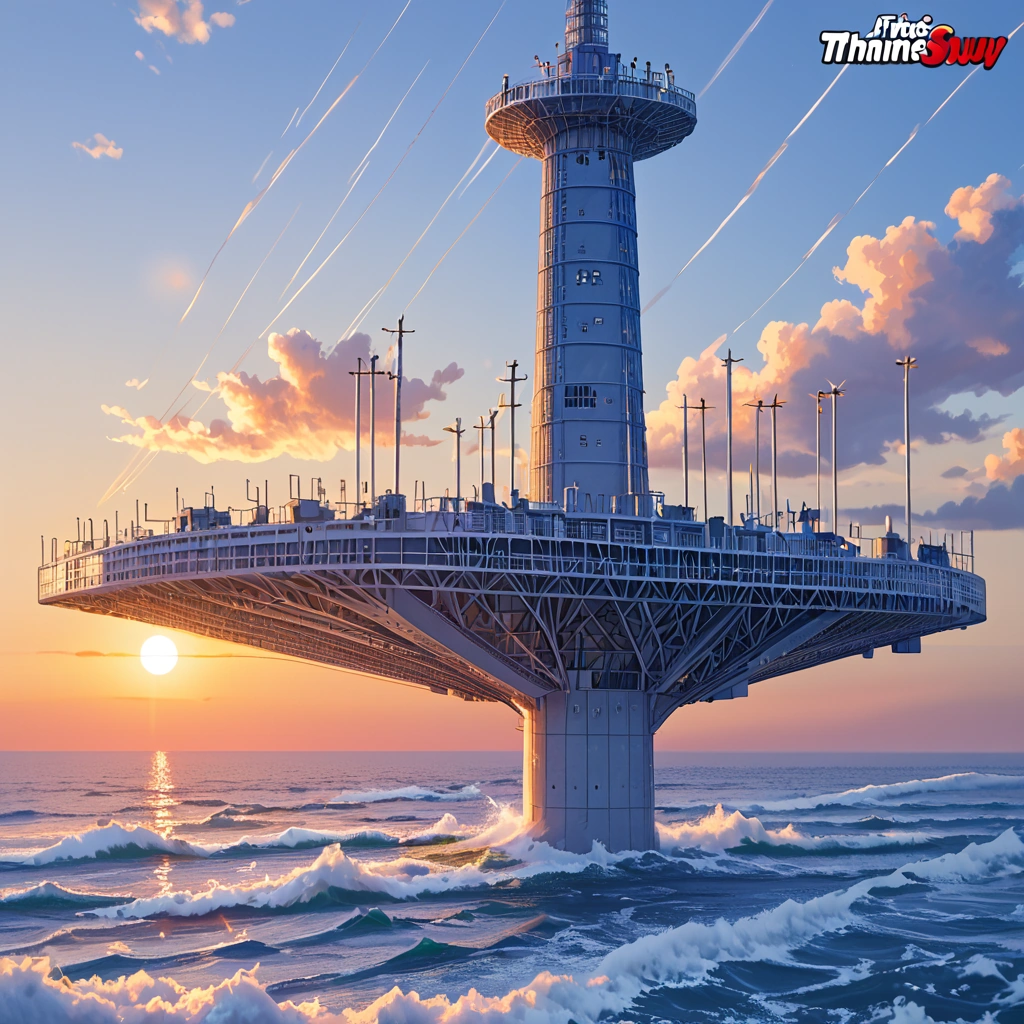Florida Homeowner’s Guide: Maximizing Energy Efficiency with Windows and Siding – Avoiding Costly Installation Mistakes
Introduction: The Florida Homeowner’s Energy Efficiency Challenge
Florida living offers sunshine and beautiful landscapes, but it also presents unique challenges for homeowners. The intense sun, high humidity, and hurricane threats can wreak havoc on your home’s energy efficiency and structural integrity. Replacing windows and siding is a significant investment, and doing it right is crucial to avoid costly mistakes and maximize long-term savings. This guide provides Florida homeowners with the knowledge to choose the right materials, ensure proper installation, and maintain their investment for years to come.
Think of it as your pre-flight checklist before taking off on a major home improvement journey, much like a flight attendant meticulously reviews safety procedures before an international flight. Just as flight attendants prioritize passenger safety, this guide prioritizes your home’s protection and energy efficiency. Beyond the immediate aesthetic improvements, upgrading to energy-efficient windows Florida and siding offers a tangible return on investment, particularly in a state like Florida. The relentless solar gain through inefficient windows significantly drives up cooling costs, making Low-E glass windows a critical consideration.
Similarly, siding choices impact thermal performance; selecting options like fiber cement siding, known for its durability and insulation properties, can substantially reduce energy consumption. By strategically addressing these elements, homeowners can create a more comfortable living environment while simultaneously lowering their utility bills and increasing their property value. Navigating the complexities of Florida home energy efficiency requires a keen understanding of regional nuances and building codes. The Florida Building Code sets stringent standards for hurricane-resistant windows siding and impact-resistant windows, reflecting the state’s vulnerability to extreme weather events.
Ensuring compliance isn’t just about adhering to regulations; it’s about safeguarding your home and family. Moreover, proper siding installation mistakes Florida can lead to water intrusion, fostering mold growth and compromising structural integrity. Therefore, partnering with reputable siding contractors Florida and window replacement Florida professionals is paramount to guarantee adherence to code and best practices. Ultimately, a holistic approach that considers both material selection and installation quality is essential for maximizing the benefits of window and siding replacements. While choosing high-performance materials is a crucial first step, the expertise of qualified installers is equally vital. Skilled technicians understand the intricacies of flashing, sealing, and fastening, ensuring a weather-tight and energy-efficient building envelope. By prioritizing quality workmanship and adhering to industry best practices, Florida homeowners can transform their residences into havens of comfort, resilience, and energy efficiency, all while adding lasting value to their properties.
Choosing Energy-Efficient and Hurricane-Resistant Materials
Selecting the right windows and siding for Florida’s climate is paramount. Impact resistance is non-negotiable, especially in hurricane-prone areas. Look for windows and siding that meet or exceed Florida Building Code requirements for wind resistance and impact protection. For windows, consider laminated glass and reinforced frames. For siding, fiber cement and impact-resistant vinyl are popular choices. UV protection is also crucial to prevent fading and degradation of materials from the intense Florida sun. Insulation ratings, measured as U-factor for windows and R-value for siding, determine how well they resist heat transfer.
Lower U-factors and higher R-values indicate better insulation. Consider Low-E glass windows coatings for windows to further reduce heat gain. Just as B.C. residents prepare for storms, Florida homeowners must proactively select materials designed to withstand extreme weather. Remember, choosing the right materials is like selecting the right aircraft for a specific route – it ensures a safe and efficient journey. When prioritizing energy-efficient windows Florida, homeowners should carefully evaluate the specific performance metrics provided by manufacturers.
The Florida Building Code sets minimum requirements, but exceeding these standards can lead to significant long-term savings on energy bills and enhance overall Florida home energy efficiency. For example, ENERGY STAR certified windows are independently tested and verified to meet stringent energy efficiency criteria. Selecting hurricane-resistant windows siding involves understanding the design pressure (DP) rating, which indicates the window or siding’s ability to withstand wind loads. Consulting with experienced siding contractors Florida can provide valuable insights into selecting the most appropriate materials for your specific location and risk profile.
Fiber cement siding is a popular choice in Florida due to its durability, resistance to pests, and non-combustible nature. It can withstand high winds and impact from debris, making it a robust option for hurricane-prone areas. Impact-resistant windows, often featuring laminated glass, provide an extra layer of protection against flying objects during storms. When considering window replacement Florida, it’s essential to factor in both the initial cost of materials and the long-term energy savings. While impact-resistant options may have a higher upfront investment, they can significantly reduce the risk of damage and the need for future repairs.
Understanding potential siding installation mistakes Florida homeowners make, such as improper sealing or fastening, is critical for ensuring long-term performance. Beyond the core materials, consider the integration of other energy-efficient features. For instance, radiant barriers in the attic can help reflect heat away from the home, reducing the load on your air conditioning system. Proper ventilation is also crucial for preventing moisture buildup and mold growth, which can compromise both energy efficiency and indoor air quality. Before making any decisions, research reputable siding contractors Florida who are knowledgeable about Florida building code requirements and experienced in installing hurricane-resistant products. Obtaining multiple quotes and checking references can help ensure that you are working with a qualified professional who can deliver a high-quality installation.
Mastering Proper Installation Techniques
Proper installation is just as important as material selection when upgrading your Florida home’s windows and siding. Even the most energy-efficient windows Florida and durable siding will fail to perform as intended if installed incorrectly. Air and water leaks are common problems stemming from poor installation, leading to significant energy loss, mold growth, and potentially costly structural damage. Imagine investing in impact-resistant windows designed to withstand hurricane-force winds, only to have them compromised by improper sealing, rendering them vulnerable.
Addressing these vulnerabilities requires meticulous attention to detail and adherence to best practices. Flashing, a thin, impervious material, is essential to divert water away from vulnerable areas around windows and siding. Without properly installed flashing, water can penetrate the building envelope, leading to rot and decay. Sealing all gaps and joints with high-quality, waterproof caulk is equally crucial to prevent air infiltration and maintain Florida home energy efficiency. Look for caulks specifically designed for exterior use and that can withstand the harsh Florida climate.
Fastening windows and siding securely to the structure is vital to withstand high winds and comply with the Florida Building Code. Use corrosion-resistant fasteners to prevent rust and deterioration, ensuring the longevity of your investment in hurricane-resistant windows siding. A critical step often overlooked is ensuring proper integration with existing building components, such as roofing and gutters. Seamless gutter installation techniques are key to preventing water damage and directing rainwater away from the foundation. For instance, if siding is installed without properly overlapping the roofing material, water can wick up behind the siding and cause significant damage over time.
Furthermore, when considering window replacement Florida, ensure the installer properly addresses the transition between the window frame and the surrounding wall to prevent air and water leaks. Failing to properly integrate these systems can negate the benefits of even the highest quality materials, leading to long-term problems and diminished energy savings. Beyond the basic techniques, understanding the nuances of Florida’s climate is paramount for successful siding installation mistakes Florida prevention. For example, fiber cement siding, a popular choice for its durability and resistance to pests, requires specific installation methods to allow for expansion and contraction in the intense Florida heat. Ignoring these requirements can lead to warping and cracking. Similarly, Low-E glass windows, designed to reduce heat transfer, must be installed with the correct orientation to maximize their energy-saving potential. This attention to detail separates skilled siding contractors Florida from those who may cut corners, ultimately costing homeowners more in the long run. Just as the Edmonton Oilers rely on Darnell Nurse’s defensive skills, your home relies on proper installation techniques for protection.
Avoiding Common Installation Mistakes
Inexperienced installers and DIYers often make costly mistakes that undermine Florida home energy efficiency. Incorrect measurements can lead to gaps and leaks, negating the benefits of energy-efficient windows Florida. Improper sealing allows air and water to penetrate the building envelope, fostering mold growth and driving up energy bills. Inadequate fastening compromises the structural integrity of the installation, especially critical when considering hurricane-resistant windows siding. Ignoring manufacturer’s instructions can void warranties and lead to premature failure.
Failing to properly prepare the substrate, such as removing old siding or repairing damaged framing, can compromise the new installation. Always double-check measurements, use high-quality sealing materials, and follow manufacturer’s instructions meticulously. Consider hiring a certified installer to ensure the job is done right. Much like riding out Hurricane Milton at Disney World requires careful planning, a successful window and siding project demands expertise and attention to detail. One of the most prevalent siding installation mistakes Florida homeowners encounter stems from neglecting the importance of proper flashing around windows and doors.
Flashing acts as a critical barrier, diverting water away from vulnerable areas and preventing moisture intrusion. Without it, even the most impact-resistant windows and fiber cement siding are susceptible to water damage, leading to rot, mold, and structural decay. According to a recent study by the Florida Solar Energy Center, homes with improperly installed flashing experience up to 30% higher energy loss due to increased air leakage. This highlights the necessity of experienced siding contractors Florida who understand the nuances of Florida building code and proper installation techniques.
Furthermore, selecting the wrong type of window glass can significantly impact Florida home energy efficiency. While impact-resistant windows are essential for hurricane protection, opting for Low-E glass windows can further enhance energy savings. Low-E coatings reduce the amount of heat that enters your home during the hot summer months, minimizing the need for air conditioning. However, choosing the wrong Low-E coating for your specific climate and window orientation can actually decrease energy efficiency. Consulting with a window replacement Florida specialist can help you determine the optimal Low-E coating for your home, maximizing energy savings without compromising hurricane protection.
This is especially important as older windows are replaced to meet more stringent energy codes. Finally, remember that cutting corners on materials to save money upfront often leads to more significant expenses down the line. For example, opting for cheaper, less durable siding materials may seem appealing initially, but they are more susceptible to damage from sun, rain, and pests. This can result in premature failure, requiring costly repairs or even complete replacement. Investing in high-quality materials like fiber cement siding, known for its durability and resistance to the elements, can provide long-term value and peace of mind. Similarly, selecting windows with reinforced frames and laminated glass ensures superior impact resistance and longevity, protecting your home from hurricane-force winds and debris. By prioritizing quality over cost, you can avoid costly siding installation mistakes Florida homeowners often regret.
The Importance of Permits and Code Compliance
Navigating the labyrinthine world of permits and code compliance is non-negotiable for any Florida home improvement project, particularly window and siding replacements. The Florida Building Code (FBC) isn’t merely a suggestion; it’s the bedrock upon which safety, structural integrity, and energy efficiency are built. Neglecting these regulations can lead to a cascade of problems, from hefty fines and project delays to the ultimate nightmare: mandated removal of non-compliant work. Before even considering siding contractors Florida or window replacement Florida, homeowners must meticulously research local building codes and permit requirements specific to their municipality.
This proactive approach safeguards your investment and ensures adherence to the stringent standards designed to protect Florida homes. The FBC’s emphasis on hurricane-resistant windows siding and impact-resistant windows directly addresses the state’s unique vulnerability. For example, the code mandates specific impact ratings for windows in coastal areas, requiring laminated glass and reinforced frames capable of withstanding extreme wind pressures and projectile impacts. Similarly, siding choices, such as fiber cement siding, must meet stringent wind resistance standards.
Compliance with these regulations is not just about avoiding penalties; it’s about ensuring the safety and well-being of your family during severe weather events. Investing in energy-efficient windows Florida that also meet these impact standards is a smart, long-term strategy for Florida homeowners. Furthermore, the permit process isn’t merely a bureaucratic hurdle; it’s a crucial quality control measure. Obtaining the necessary permits triggers inspections by qualified professionals who scrutinize the installation to ensure it aligns with the FBC.
These inspections can identify potential siding installation mistakes Florida, such as improper flashing or inadequate fastening, before they lead to costly problems like water intrusion, mold growth, and structural damage. Working with a licensed and experienced contractor who is intimately familiar with the Florida building code and can seamlessly navigate the permit process is paramount. They understand the nuances of energy-efficient windows Florida and can ensure proper installation for optimal Florida home energy efficiency. Beyond the immediate safety and structural benefits, code compliance also plays a vital role in long-term cost savings and property value.
Adhering to the Florida Building Code, particularly regarding Low-E glass windows and proper insulation techniques during siding installation, maximizes energy efficiency, reducing utility bills and contributing to a more comfortable living environment. Moreover, a home that is demonstrably compliant with all relevant building codes is significantly more attractive to potential buyers, enhancing its resale value and providing peace of mind. In essence, prioritizing permits and code compliance is an investment in the present and future of your Florida home.
Long-Term Maintenance and Finding Qualified Contractors
Long-term maintenance is crucial to ensure continued energy efficiency and prevent future problems. Regularly inspect windows and siding for signs of damage, such as cracks, leaks, or loose fasteners, which are common indicators of potential issues. Recaulk any gaps or joints as needed, paying particular attention to areas around window frames and siding seams where water infiltration is most likely. Clean windows and siding regularly to remove dirt and debris, as accumulated grime can degrade materials and reduce the effectiveness of Low-E glass windows in reflecting solar heat.
Trim vegetation that is growing too close to the house, as this can trap moisture and create an environment conducive to mold and mildew growth, potentially damaging your siding. Address any problems promptly to prevent them from escalating and causing more extensive, costly repairs. Consider having your windows and siding professionally inspected every few years, especially after severe weather events. By following these maintenance tips, you can extend the life of your windows and siding and maintain their energy efficiency for years to come.
Florida’s unique climate demands specific attention to detail when it comes to window and siding maintenance. For instance, the intense UV radiation can cause fading and degradation of siding materials over time. Regularly applying a UV-resistant sealant to your siding can help protect it from the sun’s harmful rays. Similarly, salt air can corrode metal components of windows and siding in coastal areas. Regularly rinsing these components with fresh water can help prevent corrosion and extend their lifespan.
When inspecting your windows, pay close attention to the condition of the weather stripping and seals. Replace any worn or damaged weather stripping to maintain a tight seal and prevent air leaks, which can significantly impact your Florida home energy efficiency. These proactive measures are essential for preserving the integrity of your home’s exterior and maximizing its energy performance. Finding qualified and licensed siding contractors Florida and window replacement Florida professionals is essential for a successful project, whether it’s a new installation or routine maintenance.
Start by checking online directories and review sites, paying attention to customer testimonials and ratings. Ask for referrals from friends, neighbors, and even your local hardware store. Always verify licenses and insurance before hiring anyone to ensure they are qualified to perform the work and adequately protected in case of accidents or damages. Request multiple bids and compare not only the price but also the scope of work, materials used, and warranty offered. Don’t hesitate to ask potential contractors about their experience with hurricane-resistant windows siding and fiber cement siding, as these are crucial considerations for Florida homes. Ensure that the chosen contractor is familiar with the Florida building code and can obtain the necessary permits for your project. Remember, proactive maintenance is like regular aircraft maintenance – it ensures a safe and efficient journey for years to come, preventing costly siding installation mistakes Florida.


